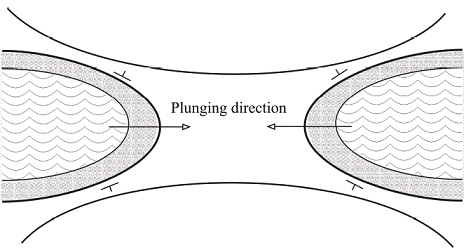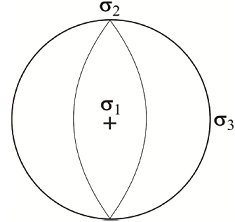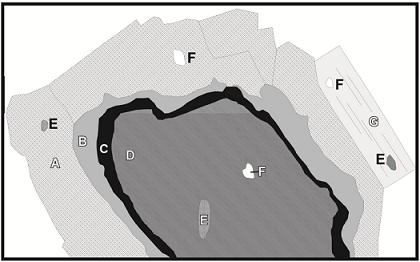GATE 2017-2018 :: GATE Geology and Geophysics
- A chondrite-normalized REE pattern of quartzo-feldspathic gneiss shows a sharp positive Eu anomaly. This indicates presence of
-
The outcrop pattern of folded sedimentary strata on the map given below represents

-
The stereographic projection below shows the principal stress axes and fault planes. The projection represents a

- Select the correct the statement from the following.
-
A, B, C, D, E, F and G are minerals in a sample of metamorphic rock. The micro-texture of the assemblage is given below. A, D and G are porphyroblasts, B and C are coronas, E and F are inclusions.
 Select the appropriate metamorphic reaction from the following options.
Select the appropriate metamorphic reaction from the following options. -
A, B, C, D, E, F and G are minerals in a sample of metamorphic rock. The micro-texture of the assemblage is given below. A, D and G are porphyroblasts, B and C are coronas, E and F are inclusions.
 Based on the micro-texture, select the oldest assemblage from the following.
Based on the micro-texture, select the oldest assemblage from the following. -
The Mohr-Coulomb failure envelope (A-B) of a porous limestone is given below.
 The point P represents
The point P represents -
The Mohr-Coulomb failure envelope (A-B) of a porous limestone is given below.
 For a condition represented by the circle 1, if pore water pressure increases, the circle will change to
For a condition represented by the circle 1, if pore water pressure increases, the circle will change to


 Whatsapp
Whatsapp
 Facebook
Facebook

